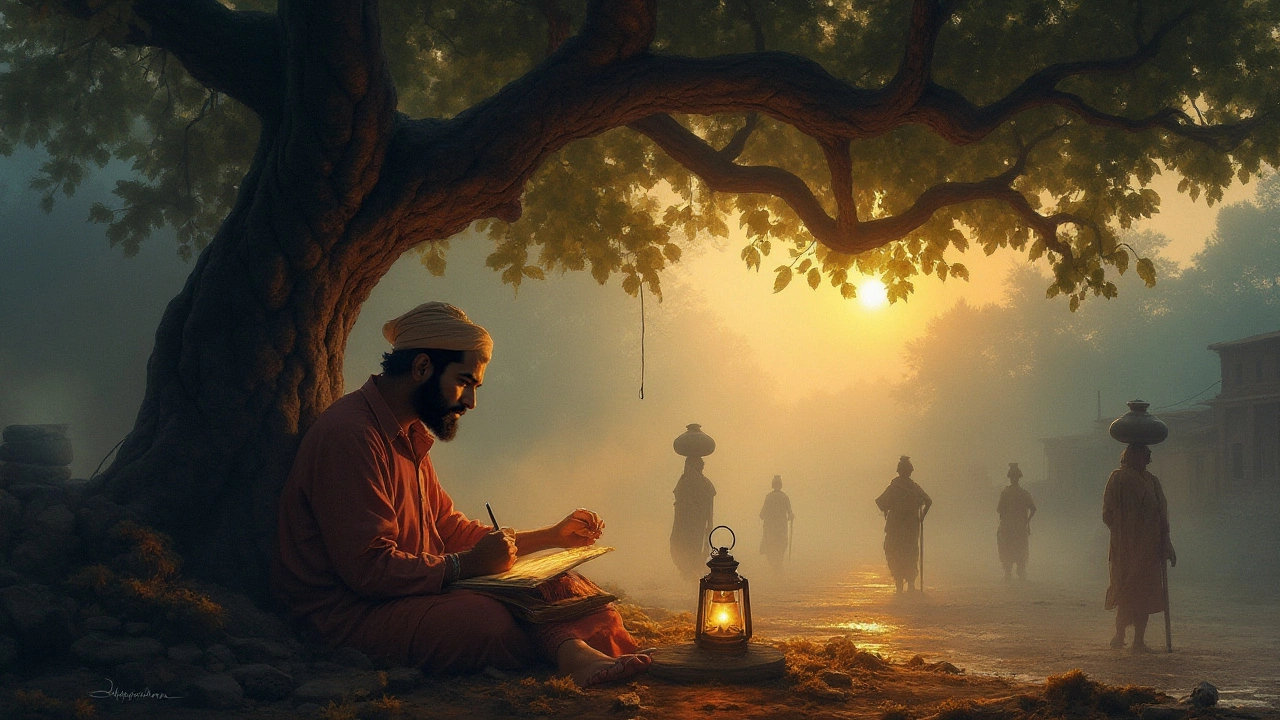Indian literature – quotes, poetry, greetings and timeless wisdom
When diving into Indian literature, the body of written works that originated on the Indian subcontinent, spanning ancient scriptures, classical poetry, modern quotes, and regional expressions. Also known as Bharatiya sahitya, it reflects the country's cultural diversity and linguistic richness. From timeless quotes, short, memorable statements that capture wisdom or emotion to heartfelt poetry, verse forms ranging from Vedic hymns to modern free verse, the collection below covers a wide spectrum. Indian literature isn’t just old books; it lives in everyday greetings, festival wishes, and even the national motto that appears on coins.
Key themes that shape Indian literature
First, cultural greetings, the words people use to wish each other during festivals, weddings, or daily interactions act as tiny poems in everyday life. Think of "Sat Sri Akal" or "Namaste" – each phrase carries layers of respect, history, and regional flavor. Understanding these greetings helps you see how language bridges tradition and modern texting habits.
Second, the national motto, "Satyameva Jayate" – meaning truth alone triumphs – embodies philosophical depth that many writers weave into their work. It shows how a single line can shape identity, appear on the State Emblem, and spark debates about meaning and usage.
Third, the world of proverbs and folk sayings, concise nuggets passed down through generations that teach morals or practical advice adds another layer. These sayings often appear in modern status updates, showing that ancient wisdom still fuels social media vibes.
All these entities—quotes, poetry, greetings, mottos, and proverbs—interact in a clear pattern: Indian literature encompasses poetry, Indian literature includes quotes, and quotes influence everyday communication. When you read a short status or a birthday wish, you’re actually tapping into centuries of literary tradition. That’s why a simple "Happy Birthday" can become a poetic line when flavored with regional idioms.
Now, let’s talk practicality. If you’re looking to boost your day, a well‑chosen quote can act like a mental spark plug. If you want to reflect deeper, a classic poem offers space for meditation. Planning a festive message? Knowing the right greeting avoids awkwardness and shows cultural respect. And if you’re curious about the motto or folk sayings, they give you quick philosophical bites you can share in a chat.
Our curated posts below walk you through each of these angles. You’ll find inspirational quotes broken down for daily use, deep poems explained, the origins of Punjabi greetings, the true meaning behind "Satyameva Jayate", respectful terminology for referring to Indian people, and even a quick guide to the first poet of India. Each article focuses on a specific slice of the larger literary mosaic, so you can pick what fits your mood or need right now.
Whether you’re a student hunting for a perfect line for a school project, a social‑media enthusiast hunting fresh status ideas, or just someone who loves the sound of a well‑crafted verse, the content ahead will give you concrete examples, practical tips, and a little historical context to make every word count. Dive in and let the richness of Indian literature inspire your next post, conversation, or personal reflection.

Exploring India's Most Impactful Collection of Sad Poetry
India boasts a rich tradition of heartfelt and poignant sad poetry that reflects the myriad of human emotions. The country's sad poetry deeply resonates with readers due to its unique cultural context and timeless themes of longing, loss, and resilience. This article delves into renowned compilations and poets whose works have touched many souls. Readers will discover how these verses continue to shape both personal reflection and cultural expression in India.
Read more